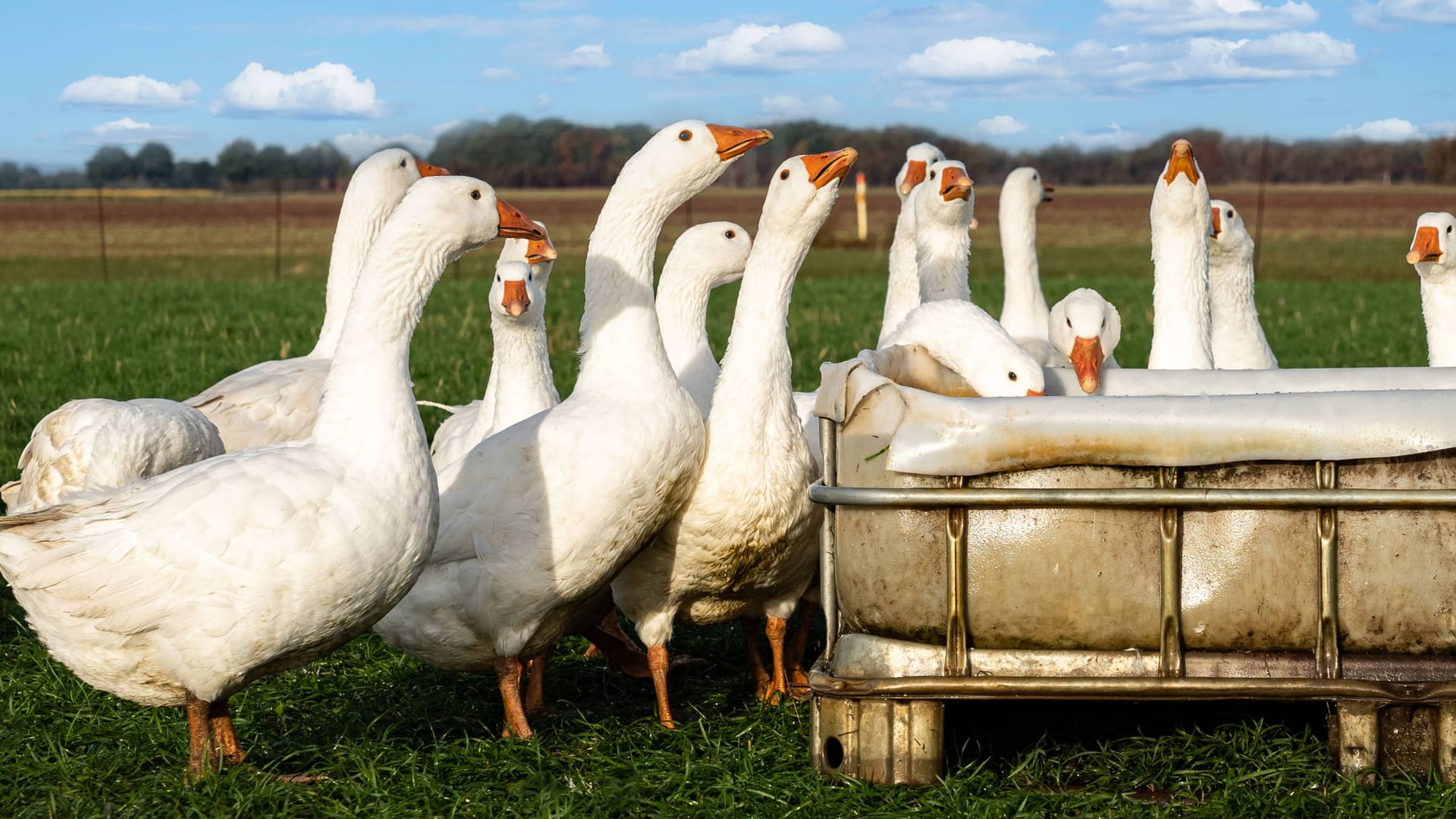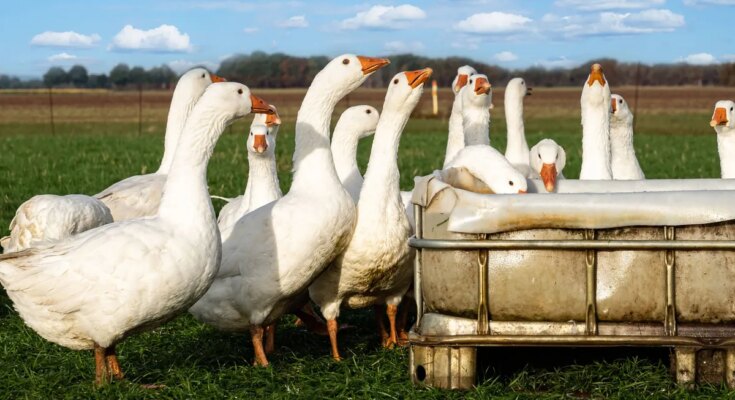Bird flu is rampant
Prices are rising: German Christmas geese are becoming rare
Updated 11/16/2025 – 11:39Reading time: 3 minutes


Bird flu spread rapidly in Germany and killed more than 1.5 million animals. This can have an impact on the holiday table.
In this country, the last two months of the year are traditionally considered goose season. Many people eat roast goose, especially at Christmas. But this year this classic dish may become rare. Due to bird flu, the Central Association of the German Poultry Industry (ZDG) warned of supply shortages and rising prices.
Some companies have carried out slaughter to prevent possible outbreaks of bird flu. Congestion is also expected in Poland, the country’s most important importer of goose meat. This could also lead to rising costs in the catering industry, said the German Hotel and Restaurant Association (Dehoga): “If there are further shortages due to bird flu (…), further price increases cannot be ruled out.”
According to Agrarmarkt Informations-Gesellschaft (AMI), the retail price of German geese is currently an average of 19.30 euros per kilo – 53 cents higher than last year. ZDG estimates prices will be between 18 and 22 euros per kilo. The association observed a significant price increase of up to 120 percent for imported geese. Last year, Polish products were offered wholesale at 3 euros or less per kilo.
The poultry industry is battling the impact of bird flu. Bird flu is a highly contagious viral disease that primarily attacks waterfowl such as geese and ducks. This disease is caused by the H5N1 virus and can spread either directly through contact between animals or indirectly through clothing and food.
According to the Friedrich Loeffler Institute (FLI), about 1.5 million animals have been killed nationwide since September. More than 100 outbreaks in poultry farms have been recorded, of which 63 occurred in Lower Saxony alone. According to the Ministry of Agriculture, around one million animals are killed there.
FLI warned of steeper developments compared to the previous record winter in 2020/2021. This transmission is caused by wild birds contracting the virus and then coming into contact with free-roaming birds. Stable requirements are now in effect in some states. ZDG is calling for this to be expanded nationally. “The migratory bird season is autumn and high viral loads further increase the risk,” said the t-online association.
However, the obligation to keep geese in cages has reached its limit. A company from North Rhine-Westphalia, which did not wish to be named, reported to t-online: “Geese are grazing animals. Permanent cage keeping is stressful for them.”



